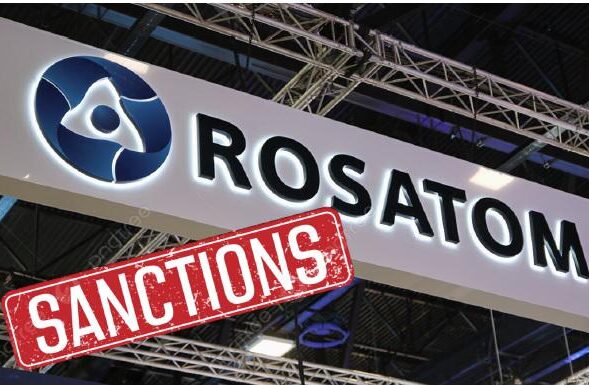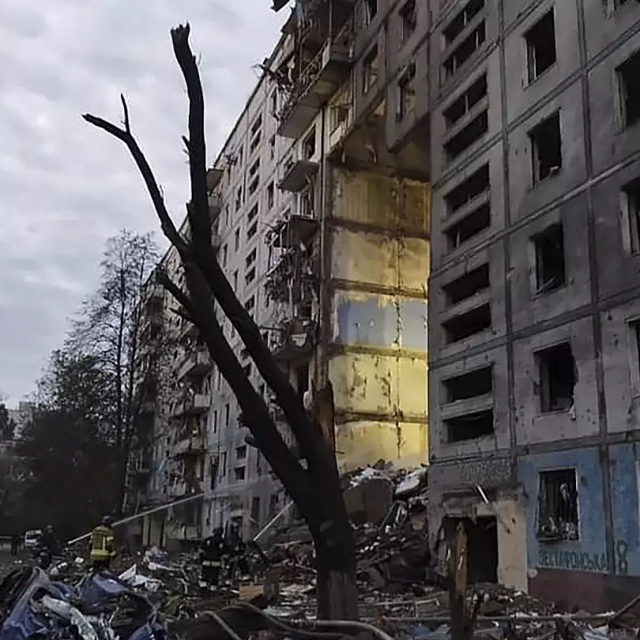Since assuming the presidency of the United Nations Security Council in July 2024, Russia has adeptly utilised this platform to advance its strategic initiatives and resolutions. Central to Moscow’s agenda are nuclear themes, which pose a significant global security threat. Russian President Vladimir Putin has deployed tactical nuclear weapons on the territory of its ally Belarus and openly threatens to revise Russia’s nuclear doctrine. Russia utilises the threat of a nuclear accident at the Zaporizhzhia Nuclear Power Plant (ZNPP) to compel the West to cease support for Ukraine. This policy of blackmail aims to place large territories under the threat of nuclear catastrophe, coercing countries to comply with Moscow’s demands.
Nuclear energy has emerged as a pivotal tool for Russia’s geopolitical ambitions, supplanting traditional leverage through gas and oil supplies. The state-owned corporation, Rosatom, actively participates in international projects to construct nuclear facilities, albeit with considerable risks. Rosatom’s role increasingly parallels that of Gazprom, but with potentially graver implications, given its crucial influence over Russia’s nuclear projects and doctrine. Moreover, Rosatom facilitates the circumvention of sanctions related to advanced technologies and may be involved in creating testing grounds to advance nuclear capabilities for rogue states. Backed by virtually unlimited budgets, Rosatom executes its operations globally, potentially securing leadership in nuclear facility construction through substantial incentives to governmental and business entities in host countries.
The financial prowess of Rosatom creates a scenario where officials are ensnared in Russian economic and political dictates, complicating the negotiation of more advantageous and reputably clean contracts. Furthermore, Rosatom’s activities pose threats to national security as the corporation may purchase loyalty and intelligence, or serve as a source for forming and funding Russian covert networks worldwide.
Rosatom is actively expanding its presence in resource-rich countries of the Global South. However, these projects mirror the toxic and contentious nature of Russian diamonds or energy resources. The state corporation also engages in projects within temporarily occupied territories of Ukraine, presenting itself as the “owner” of the Zaporizhzhia Nuclear Power Plant, which contradicts all international norms and creates an extremely threatening situation at Europe’s largest station.
Media investigations reveal instances of bribery aimed at seizing control of uranium and other strategic resources from government officials. The scheme includes using private military companies to control deposits and facilitate mineral exports. Rosatom’s activities displace Western corporations from Global South countries, consolidating its influence and control over critical resources.
The global community must unite and resist Russia’s nuclear blackmail. Otherwise, many countries will face the threat of nuclear accidents and lose control over strategic resources. Russia uses its presidency in the UN Security Council to achieve its goals, including promoting initiatives and resolutions advantageous to itself, as well as blackmailing representatives of different countries with nuclear topics. This undermines the foundations of international security and stability. Russia uses its resources to bribe officials and promote its economic interests at the expense of the national security of other countries.
In response to these threats, the international community needs to act decisively. Effective sanctions against Rosatom and other Russian corporations pivotal to the Kremlin’s geopolitical expansions are necessary. This includes blocking access to advanced technologies, financial markets, and strategic resources. Only through such measures can the aggressive ambitions of Russia be contained and global stability ensured.
Russia’s activities, particularly its nuclear blackmail, pose a serious threat to global security. The international community must unite efforts to counter these threats and prevent catastrophic consequences. Collective action is imperative to safeguarding peace and stability worldwide.




